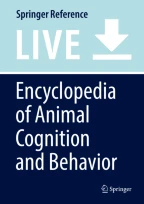
Conditioned inhibition (CI) refers to a phenomenon of associative learning in which a stimulus (a conditioned inhibitor) signals the absence of an unconditioned stimulus (US). More technically, a conditioned inhibitor is defined as a stimulus that passes both a summation and a retardation of acquisition test (see below).
Animals are constantly learning where to get food, safety, and comfort, through Pavlovian associations. They spend energy moving toward cues that signal appetitive outcomes and moving away from situations that predict danger. Interestingly, as useful as it is to learn to look for food and to escape, it is to learn where and when not to, allowing the animal to save energy and effort. Environment cues can give us this type of information by signaling that an outcome will not occur right now. CI is the mechanism by which we can learn not to respond to those situations.